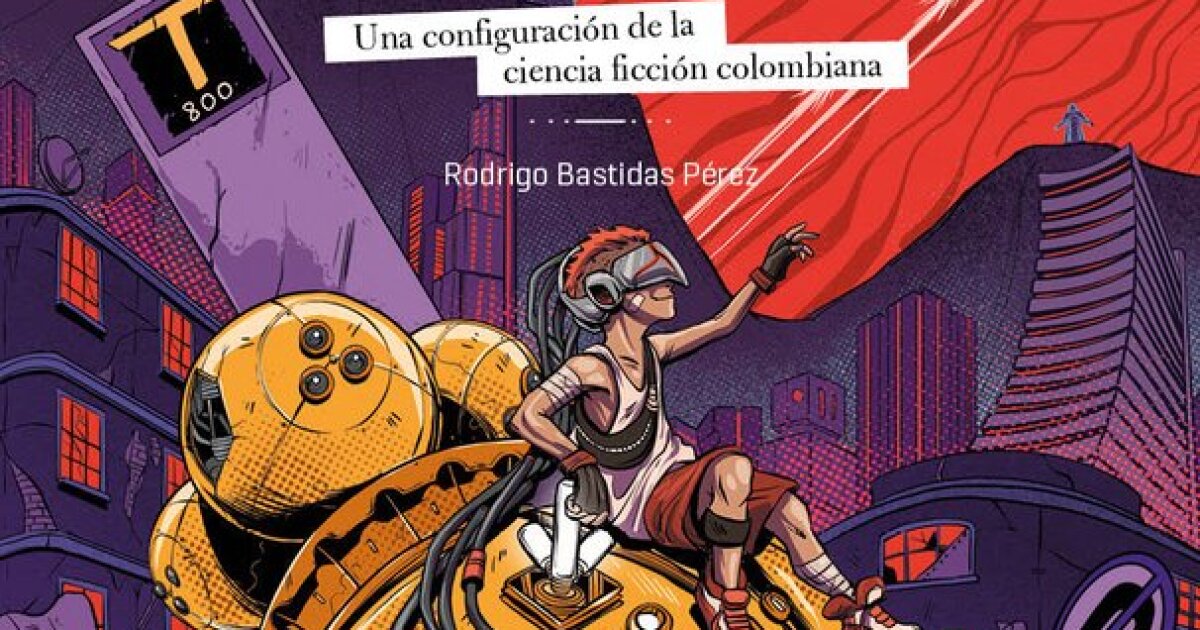Science fiction in Colombia is more prolific than we think. This is the end of the book Luminous Objects and Other Dimensionsby Rodrigo Bastidas.
This work is a book of research, history and literary criticism in which Bastidas tells, and at the same time an analysis, of the most important moments and topics in the history of science fiction literature in our country.
We talked to the author about science fiction in Colombia and concluded that the genre is being explored more in the country than we thought.
From the research you’ve done, what’s your conclusion about science fiction in Colombia?
Columbia sci-fi isn’t the kind to talk about escapes, spaceships, or a dystopian future. It’s a literary genre based on the “B” side of the story that we generally didn’t pay attention to. Colombian science fiction is the result of a series of discourses that intersect in an amazing fiction, in which we can read about changes in politics, economics, science and in the perception of reality in Colombia.
The proposal I have built in this research is to place a type of literature that has always been on the edge at the center of the literary spectrum: that is concerned not with copying reality, but in creating worlds of imagination.
In the case of Colombia, science fiction has served to show how what we understand as science has always been in constant dialogue with notions of religion, mystical and spiritual, suggesting a deep insight into the country’s historical construction.
Are you saying that Colombian science fiction is not as well known as other genres within what is being done in the country? why?
Science fiction in Colombia, as in other countries, is a literary genre limited to a specific reading audience. The reason for this focus is that it is a genre historically associated with action movies and series, superheroes, or the amazing nature of the game. pulp. Although these cultural products are also science fiction, in the case of literature we find an organized type of complex principles of the form of science as discourse and its effect on reality.
Readers usually get used to some form of realistic representation that entails understanding from the reference; In the case of science fiction, readers encounter non-simulated worlds created from induction, leading to a change in the way fiction is typically read. Perhaps this is one of the reasons science fiction is not as widely read and known as other genres.
What do you think is the most important science fiction work in Colombia?
More than work, it is necessary to point out An author like the one who, since the 1960s, created the minimal standards of Colombian science fiction; Parameters that served as a structure for many later authors: Renee Ribbitz. This author not only wrote three books of stories that became the starting point for all science fiction stories of the second half of the twentieth century, but also developed a theory about how the Latin American genre could be built.
For Ribbitz, science should not only respond to classical Cartesian criteria; In a new form of epistemology from the South, it was possible for him to understand mystical, traditional and cosmological knowledge, as new forms of science that would produce new texts. His studies of Sufism, Buddhism, and traditional settlers made science fiction written in Latin America a unique option full of possibilities.
Through your research process, what caught your attention the most?
Although this is common, it is still surprising that many people believe that science fiction does not exist in Colombia and do not know that it has a rich and prolific history for several decades.
For many readers, science fiction is only possible as an outgrowth of the so-called first world where computer technology is conceived as the only form of science; In contrast, science fiction in both Colombia and Latin America suggests other types of dynamics that are not necessarily related to the idea of the future implanted from the United States or Europe.
Science fiction emerges in Colombia as a critical view that emphasizes the ways in which the state has used science as a form of social control and enforcing biopolitics. Seeing Colombia’s history from this axis allows us to better understand how a unique vision of the country has been built, and how the possibilities of reality can be opened from fiction.
What work do you think is essential to dealing with science fiction in Colombia?
More than one work, there is a series of books that allow us to approach Colombian science fiction from different angles. From the first texts of the second half of the nineteenth century, such as the story “An Opium Dream or Magic?” by Julio Garavito, passing through novels from the beginning of the twentieth century such as Barranquilla 2132 by Osorio Lizarazo, mid-century books such as New prehistoric by Renee Ribbitz, to more current novels such as worm by Luis Carlos Barragán O Zenno By Karen Reyes Colombian science fiction has always been a place for rethinking ourselves as a society.
Even famous realist writers wrote science fiction books because they found in this genre a freedom that they did not find in simulated texts; books like undefeated knight From RH Moreno-Durán or still water From Juan Alvarez attests to this. In short, Colombian science fiction is an undiscovered genre that has as many authors and aspects to be created of possible worlds as possible.




:quality(75)/cloudfront-us-east-1.images.arcpublishing.com/elcomercio/DXYVIQR6EBGULOFBFA2HOAQVIM.jpg)
